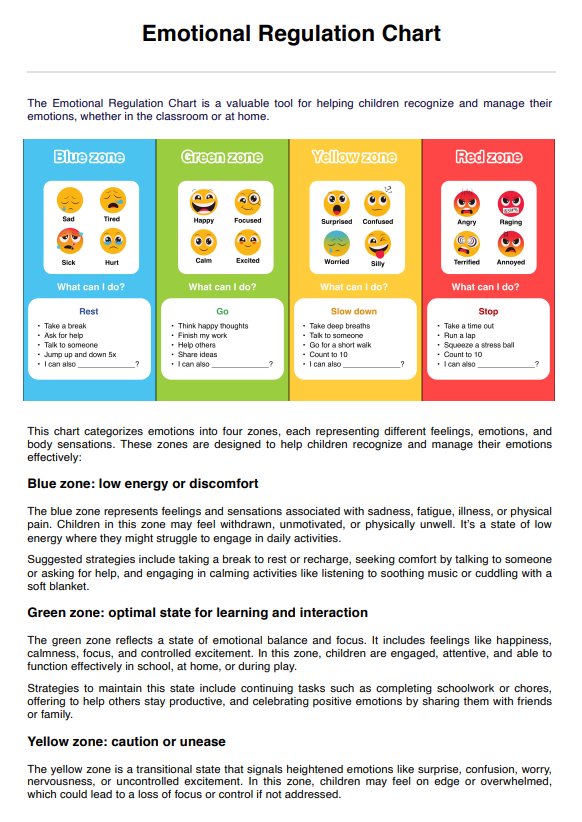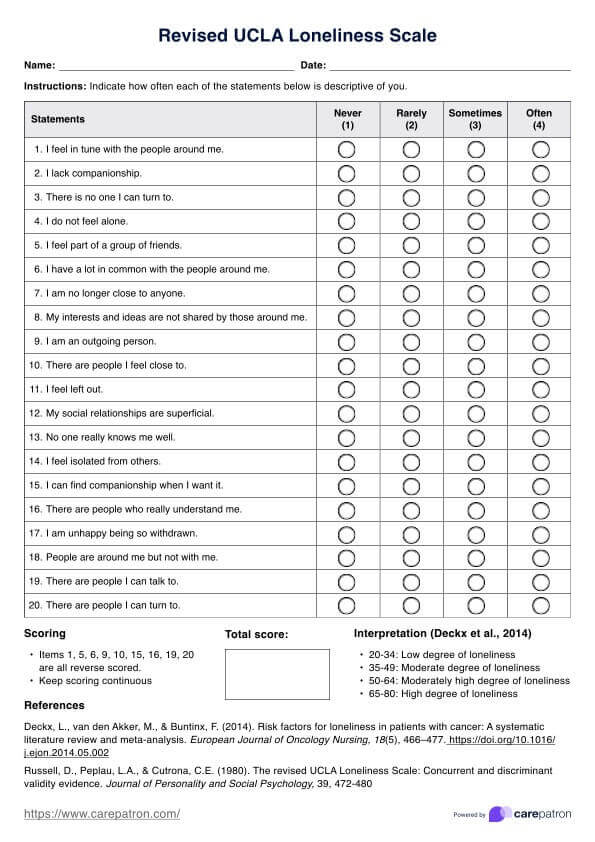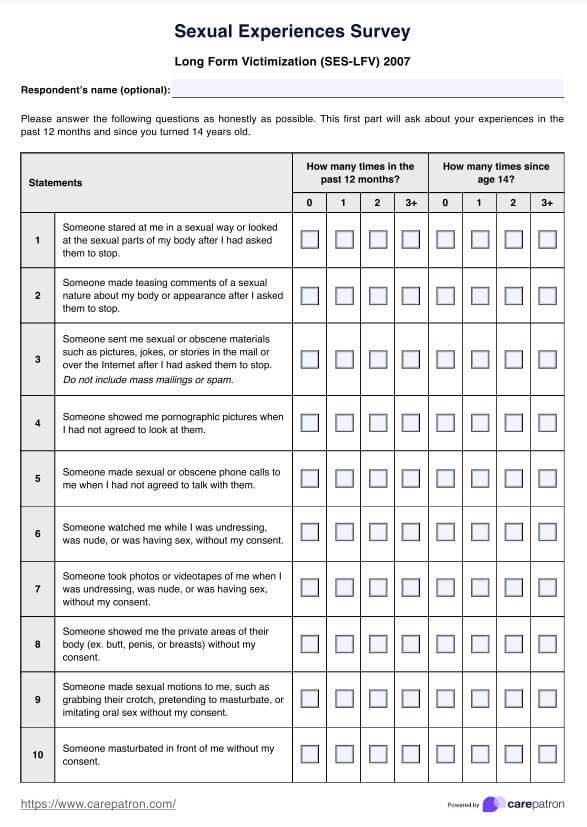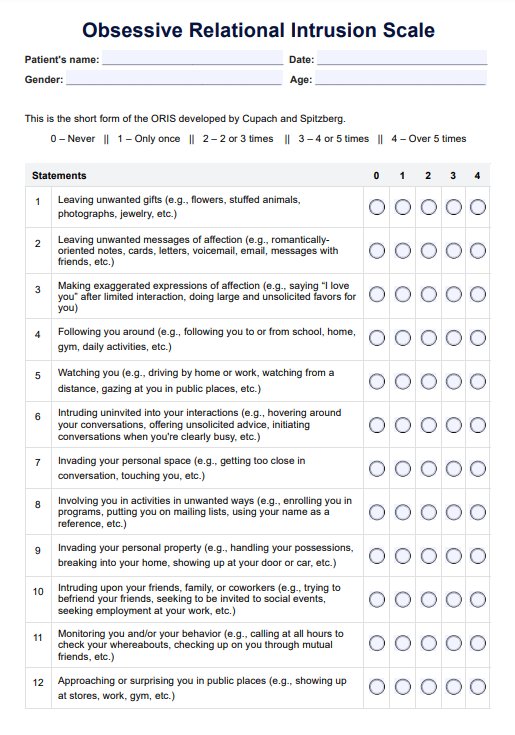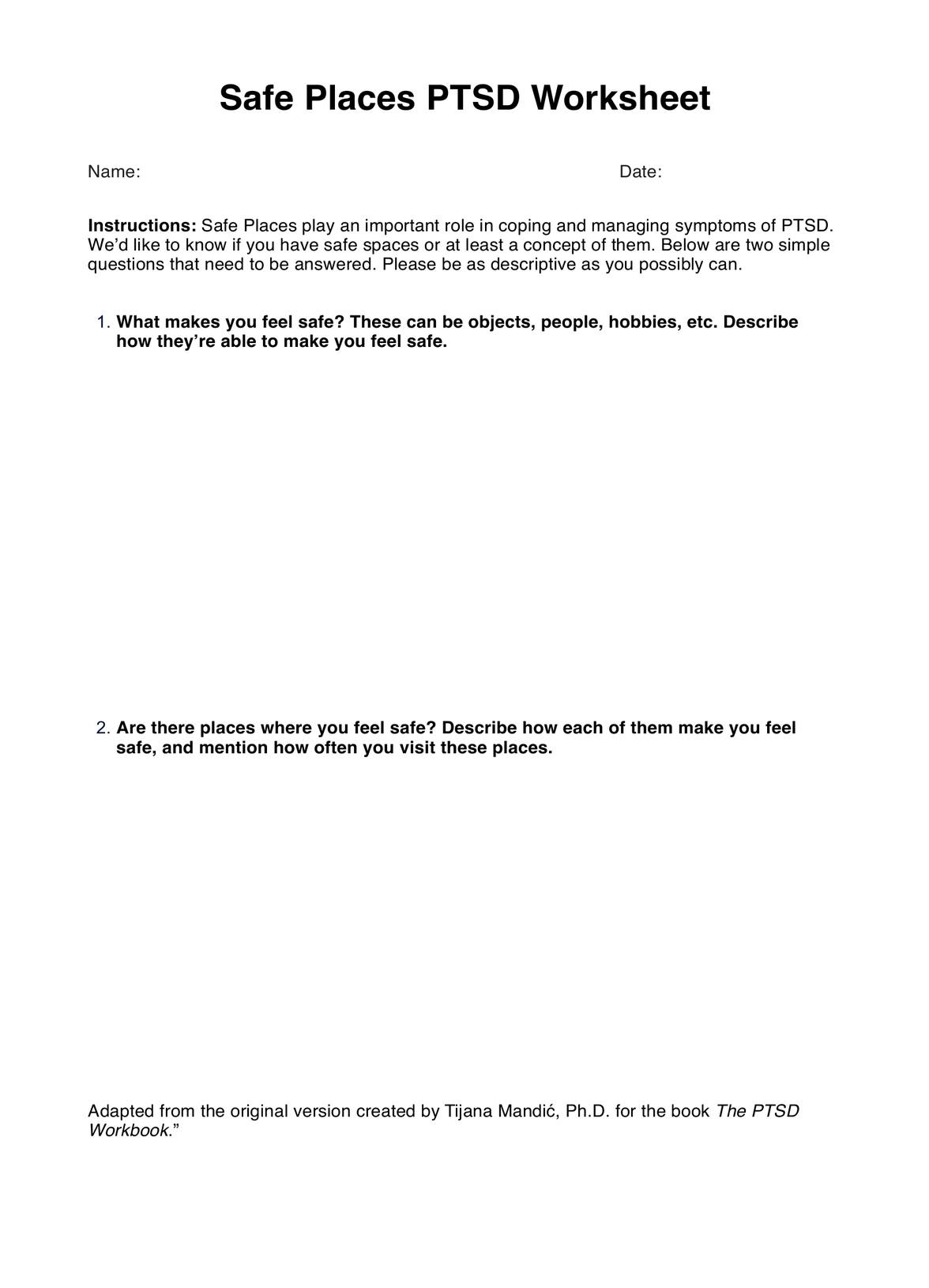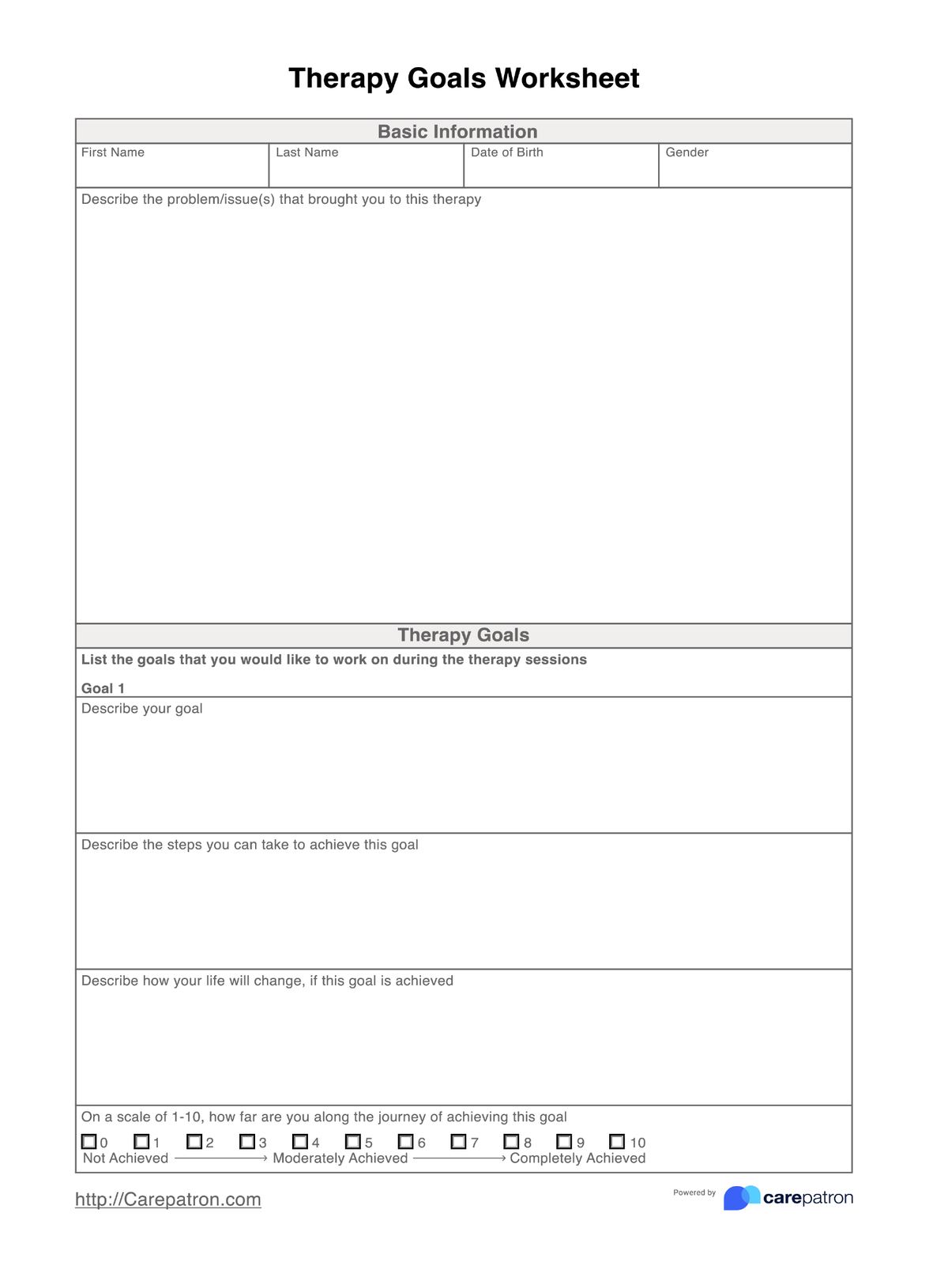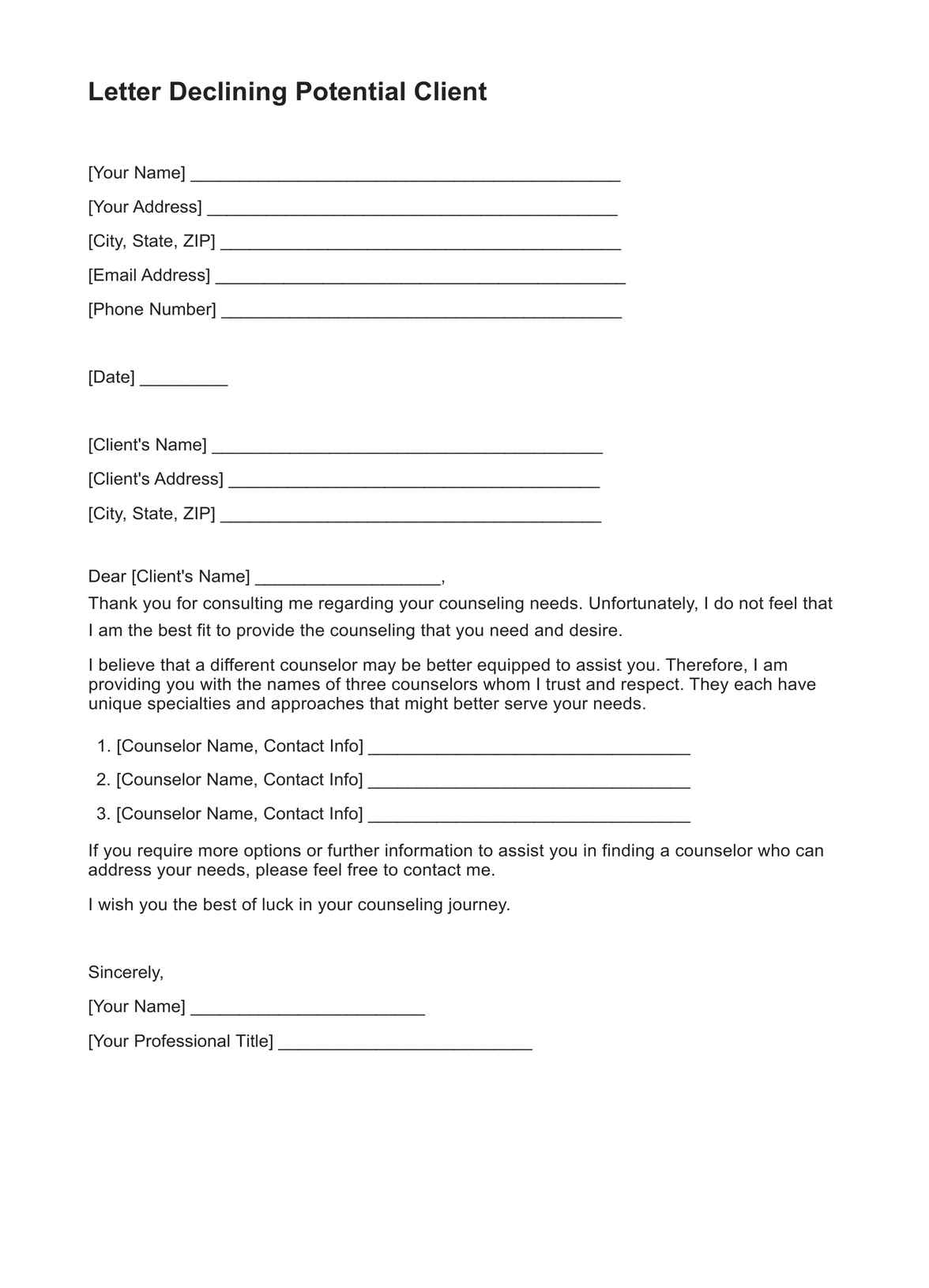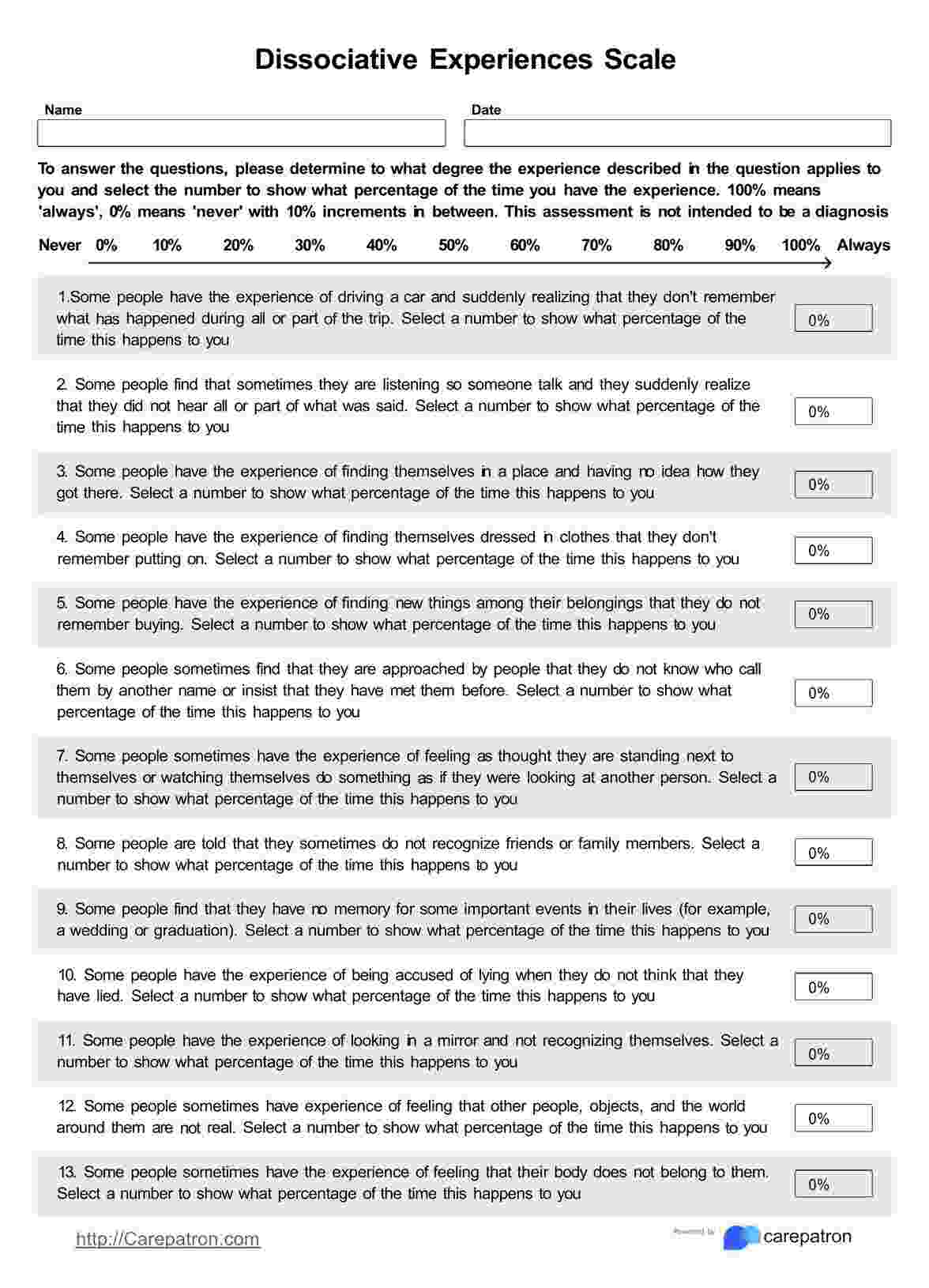DBT Accepts Skills Lists
Discover the DBT Accepts Skills List, a proven tool for managing distressing emotions. Ideal for therapists, individuals, and anyone seeking emotional balance.


What is a DBT Accepts Skills List?
A Dialectical Behavioral Therapy (DBT) Accepts Skills List is a potent therapeutic tool designed to facilitate emotional regulation and distress management. The term "ACCEPTS" is an acronym, each letter representing a different strategy for managing distress: Activities, Contributing, Comparisons, Emotions, Pushing Away, Thoughts, and Sensations.
These strategies enable individuals to temporarily deflect from distressing emotions, providing respite until they can address them more constructively. By employing these tactics, people can better manage their emotional responses and navigate stressful situations more resiliently.
The DBT Accepts Skills List forms an integral part of the 'Distress Tolerance' module in DBT, a therapeutic approach that emphasizes teaching individuals how to handle painful emotions more healthily. It is widely used in individual and group therapy settings, underscoring its versatility and adaptability to therapeutic contexts.
This list is commonly provided as a worksheet or card, making it easily accessible during emotionally challenging moments. The format is designed to serve as a quick, go-to reference guide, assisting individuals in implementing the ACCEPTS strategies when they need them most.
You can also explore our comprehensive for more detailed information on this valuable resource.
DBT Accepts Skills Lists Template
DBT Accepts Skills Lists Example
How does it work?
Step 1: Understanding the ACCEPTS Acronym
Each letter in the ACCEPTS acronym stands for a different distress tolerance strategy. Activities include engaging in positive actions that can distract from distressing emotions. Contributing refers to doing something kind for another person. Comparisons involve comparing oneself to those who are less fortunate.
Emotions mean engaging in activities that elicit the opposite emotion to the one causing distress. Pushing Away involves temporarily pushing distressing thoughts away. Thoughts can be distractions by focusing on other, non-distressing thoughts. Sensations refer to doing something that creates a strong physical sensation.
Step 2: Implementing the Strategies
Once you understand what each letter in the acronym stands for, the next step is to implement these strategies in your daily life. This could involve planning activities that you know will help distract you when you're feeling distressed or practicing mindfulness exercises to help manage your emotions.
Step 3: Using a Printable DBT Accepts Skills List
Our printable DBT Accepts Skills List can be a helpful tool to remind you of these strategies and help you implement them in times of distress. You can always keep it with you so you always have a helpful reminder of the strategies you can use.
When would you use this Form?
The Dialectical Behavioral Therapy (DBT) Accepts Skills List is a practical tool that can be employed whenever an individual encounters distressing emotions that require effective management strategies. This resource is not limited to a particular setting or circumstance; it's designed to help navigate various emotionally challenging situations.
The DBT Accepts Skills List can be particularly useful during high-stress scenarios at work, such as dealing with tight deadlines, managing conflicts with colleagues, or handling overwhelming workloads. By employing the ACCEPTS strategies, individuals can better regulate their emotional responses and maintain their composure, ultimately enhancing their overall work performance.
Beyond the workplace, this tool can also be invaluable during personal interactions that may trigger strong emotional responses. Difficult conversations with loved ones, confrontations, or emotionally charged discussions can often lead to feelings of distress. Utilizing the DBT Accepts Skills List in these situations can provide the necessary strategies to manage these emotions effectively, facilitating healthier communication and relationship dynamics.
Healthcare professionals, including psychologists, psychiatrists, therapists, and social workers, frequently use the DBT Accepts Skills List. They incorporate it into their therapeutic interventions to equip clients with tangible skills to manage their distress. It empowers clients to handle their emotions more constructively, promoting their overall mental well-being.
Moreover, the DBT Accepts Skills List can be an excellent addition to an individual's self-care toolkit. Its strategies can be easily integrated into daily routines, providing consistent support for emotional regulation. This makes it a valuable resource for those undergoing therapy and anyone seeking effective ways to manage distressing emotions.
The DBT Accepts Skills List is a versatile resource used across various contexts - professional settings, personal relationships, or individual self-care practices. Regardless of the situation, it offers practical strategies to manage distress and promote emotional well-being.
Benefits
Enhanced Emotional Regulation
The DBT Accepts Skills List provides concrete strategies to help manage distressing emotions, and enhancing emotional regulation skills.
Improved Distress Tolerance
This tool can help individuals cope with difficult situations more effectively by providing strategies for tolerating distress.
Increased Mindfulness
The DBT Accepts Skills List strategies encourage mindfulness, helping individuals stay present and focused despite distress.
Accessible and Practical
As a free DBT Accepts Skills List, this tool is accessible to anyone and can be easily implemented daily.
Research & Evidence
Dialectical Behavioral Therapy (DBT), including the Accepts Skills List, has a robust foundation built on extensive research and empirical evidence. This therapeutic approach was pioneered by psychologist Marsha M. Linehan, who aimed to create an effective treatment for individuals struggling with emotional regulation, particularly those diagnosed with borderline personality disorder.
Since its inception, DBT has undergone many studies that have consistently demonstrated its efficacy in treating various mental health conditions. These include but are not limited to, borderline personality disorder, depression, anxiety, and eating disorders. The effectiveness of DBT is not confined to any specific demographic or disorder, underscoring its versatility as a therapeutic tool.
A crucial component of DBT is the 'Accepts' Skills List, which forms a part of the Distress Tolerance module. This list has been specifically designed to help individuals temporarily distract from distressing emotions, providing them with a halt until they can deal with them more effectively. The strategies included in this list have proven beneficial in managing distress and enhancing overall emotional well-being.
Specific research has been conducted into the effectiveness of the 'Accepts' Skills List, such as reduced symptoms of depression and anxiety. Furthermore, it improved distress tolerance, a key factor in managing negative emotional states and preventing the escalation of distress.
The comprehensive research supporting DBT and the Accepts Skills List proves its effectiveness. This makes it a reliable resource for healthcare professionals and individuals, offering evidence-based strategies to manage distress and promote emotional regulation.
Commonly asked questions
DBT Accepts Skills Lists are typically used by healthcare professionals such as psychologists, psychiatrists, and therapists in their practice. Individuals can also use them for personal self-care.
DBT Accepts Skills Lists are used whenever an individual is experiencing distressing emotions and needs strategies to manage them. This can be during a stressful situation, a difficult conversation, or when emotions feel overwhelming.
DBT Accepts Skills Lists are used by implementing the strategies outlined in the list during distress. This can involve engaging in distracting activities, contributing to others, making comparisons, eliciting opposite emotions, and pushing away distress.

.jpg)
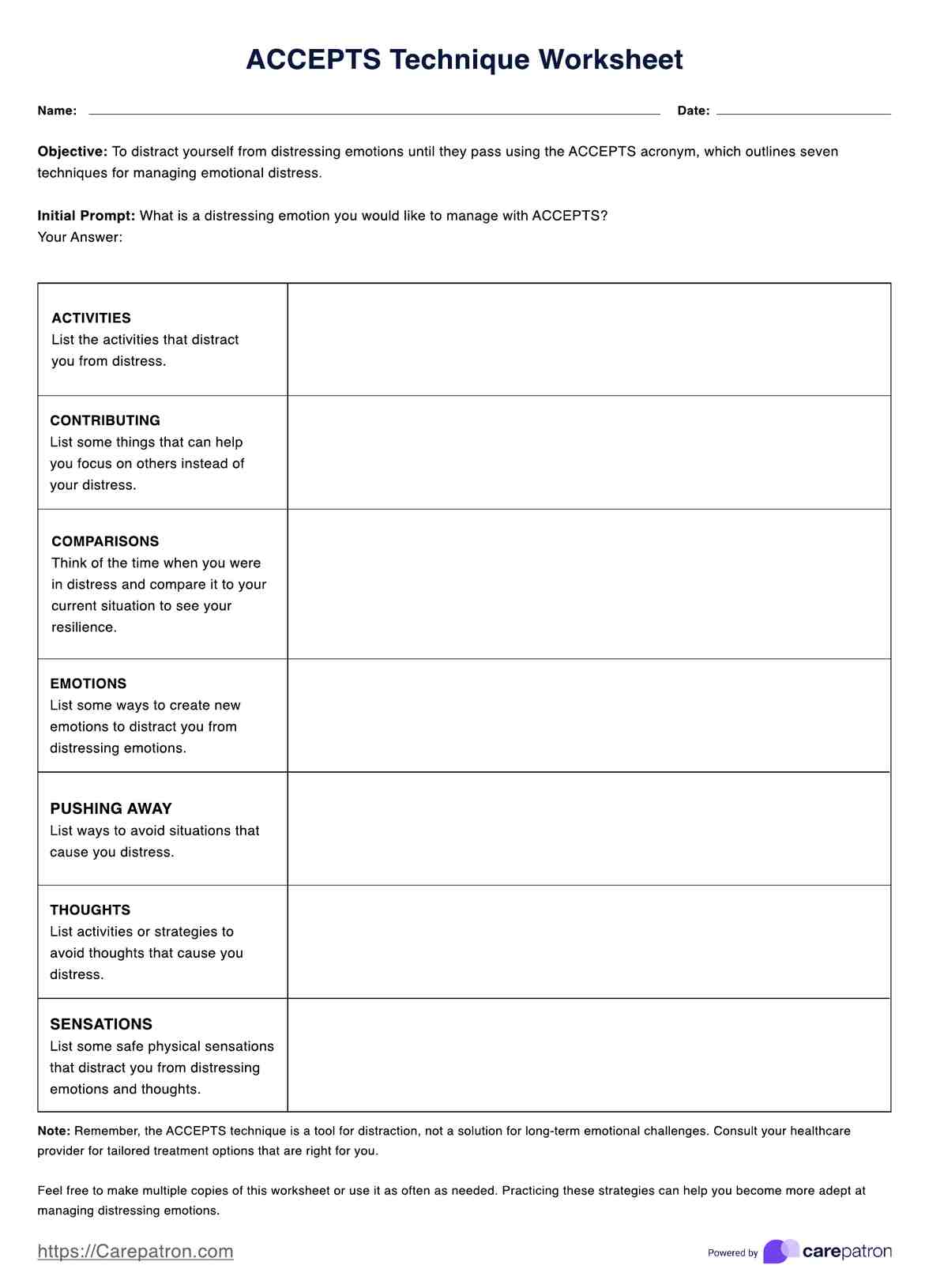
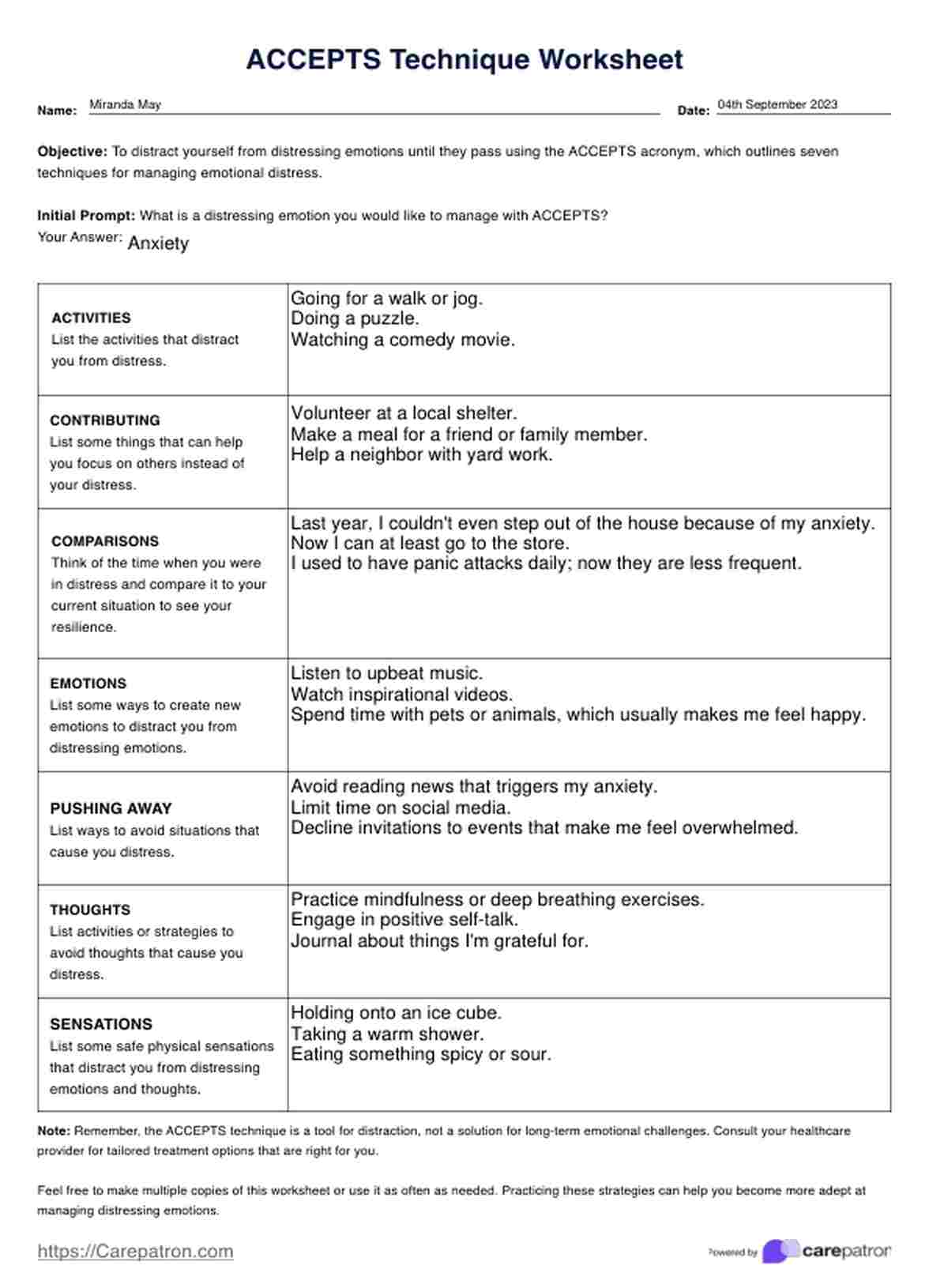

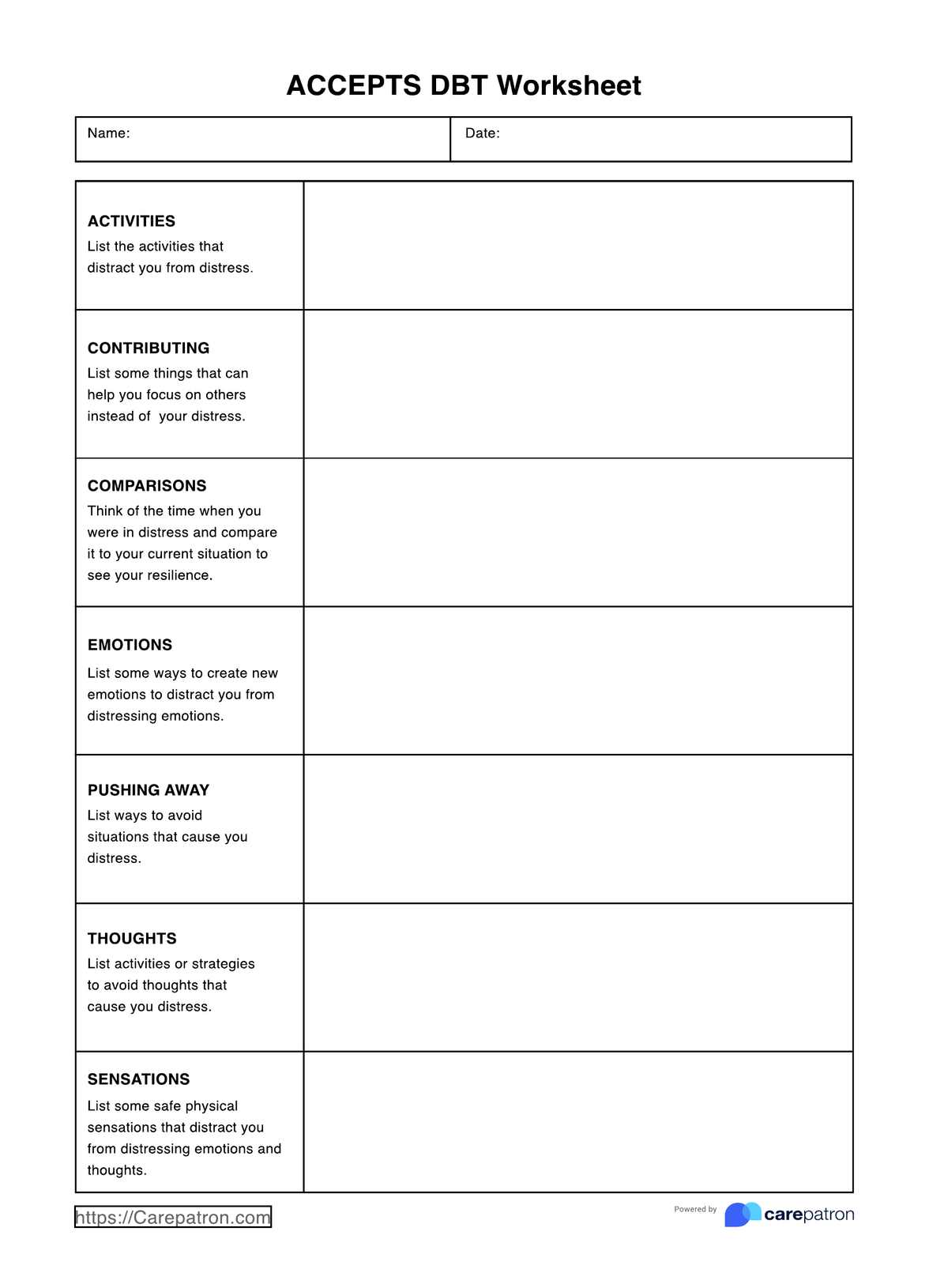






-template.jpg)






